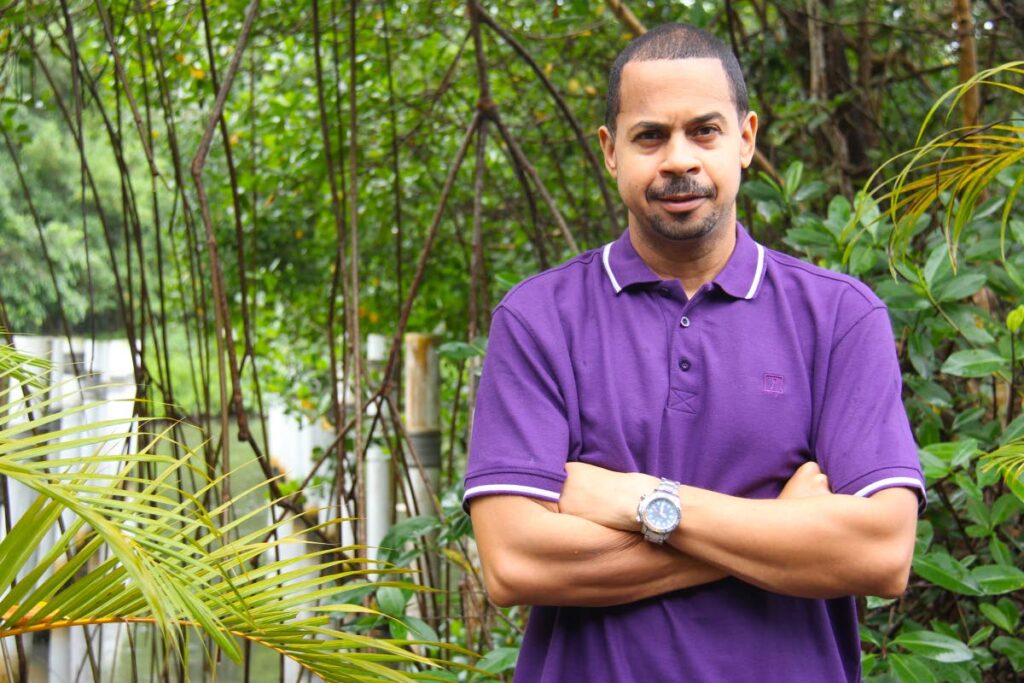Backwardness of a paper-based society

PAOLO KERNAHAN
WHAT do you get for the public servant who has everything? An ink stamp, stapler, and any reason to turn the customer away.
In TT, productivity is frittered away because of an affinity for paperwork, pointless procedure and disdain for digitalisation.
What would this place look like if the public service was rejiggered to actually serve the public?
There seems to be no understanding of the staggering cost of sticking with paper-based processes. Thousands of man/woman hours are flared off in an interminable ode to institutional sloth and incompetence.
But hey, not one open-toed shoe was allowed in the building.
I went to renew my driver's permit last week in Guaico, Tamana. This was further than I'd normally travel for a renewal. I had to go to Guaico because getting an appointment at a closer location was like trying to catch a zandolee with buttered fingers.
You can make an appointment and fill out the application online, but that's where the wow factor ends. Both the appointment document and renewal form must be printed and presented at the licensing office.
Additionally, applicants for renewals must show a recent utility bill; another brick in the bureaucratic wall. The bill requirement is of fairly recent vintage.
Other societies have made such transactions hassle-free. In TT we pride ourselves on making them more hassle-full. This is achieved partly through a false hybrid of e-service and in-person service that's even creakier than its predecessor.
Adding nuisance to inconvenience, I went to WASA to get a recent bill print-out for proof of address. My home address exists nowhere on their "system," apparently.
On the morning of my licence renewal, I stood in line as security guards rifled through everyone's documents. Interestingly, the guards at the Guaico office soared above their job specs. They were professional and helpful, particularly with those who had either filled out forms incorrectly or came up short on documents.
Their mission, in part, appeared to be ensuring members of the public got through by hook or by crook that day. These officers have clearly gone rogue.
My experience at Guaico was mercifully smooth. Staff were courteous and the actual renewal was over in minutes.
Still, the process is very much an analog affair. In 2022, there's an abiding addiction to paperwork in the public service.
Moreover, I'm willing to bet if a public servant was forced, upon pain of death, to produce a document I'd submitted five years ago, he or she would be as good as dead. Filing cabinets in government offices are little more than graves for trees.
When contrasting any interaction with the public service and the US embassy, for example, the difference is stark. A few years ago I renewed my US visa without going anywhere near embassy offices. All forms were submitted online and my passport was mailed to them through DHL.
In other countries, many of these transactions can be done electronically. In some states in the US you can even get married and divorced online.
For TT though, the romance with paperwork burns brighter than ever. No matter how many times you provide your birth certificate, you must present it again, because that's just how it is. You must be reborn upon each expiration.
Estonia, one of the leading digitalised societies, has a "once-only rule." If citizens are in the system, the government is only allowed to request a particular document once; government agencies are digitally interlinked. In TT, agencies aren't even networked within themselves.
Rather than embrace technology in government services, the public sector focuses all fire on enforcing ridiculous rules.
Recently, there was a video online of a young man complaining that he had taken a day off to collect a gas tank at NP's head office. When he got there he was denied entry because of his shorts – on one of the hottest days in the history of the known universe. So now NP is an arbiter of respectable attire for access to the most basic of services.
Our affinity for the grinding inefficiency of paper-based processes devours productive time and stifles growth. While other countries shake off the yoke of officious proceduralism, we're busy rubber-stamping ourselves into irrelevance.

Comments
"Backwardness of a paper-based society"